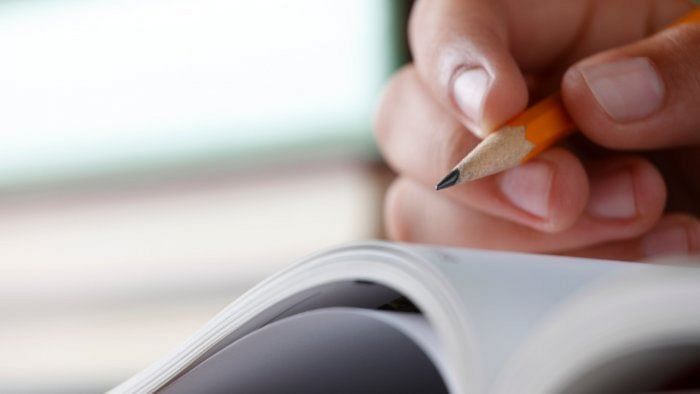
Kargil native Taslima Naaz is currently undergoing a rigorous academic coaching in Kashmir as part of the Army's prestigious Super 50 programme, and the 18-year-old says she is determined to secure admission in a good medical college for an MBBS course before going back to her hometown.
She is among the four girls from Ladakh Union Territory -- three from Kargil and one from Leh -- who have been chosen this year after a tough screening process under the educational programme of the Army that coaches 50 youths for the competitive NEET examination.
"I always knew that I wanted to become a doctor, and pursuing that dream brought me from Kargil to Srinagar. After qualifying in the written exam, I was called for an interview and then finally selected. I got to know about the Super 50 programme through an advertisement," Naaz told PTI.
She says her father runs a shop in Kargil and mother is a housewife. She has an elder sister and a younger brother who is in primary school.
"I finished by class 12 this year from a private school. My sister is an engineer and she is my first and closest inspiration to do well in life. I will make her and my family proud," Naaz said.
PTI recently visited the Army facility located in Haft Chinar in Srinagar, where the programme is being run, and interacted with some of the students, and a representative of the Kanpur-based NGO, which is a partner in this programme, along with a PSU through its corporate social responsibility-related activity.
The current programme evolved out of the Super 30 initiative that began in 2018 and initially only 30 boys from Jammu and Kashmir were selected and trained for the National Eligibility cum Entrance Test (NEET) for the undergraduate-level, the representative of the NGO said.
"Since 2021, 20 girls have also been added to it, and so it is called Super 50. Out of these 20 girls, four are from Ladakh region, three from Jammu and rest 13 from Kashmir region. Maximum number (seven) of girl students, who have joined are from Ganderbal, and five are from Kupwara, and one from Shopian," he told PTI.
The programme intends to make the candidates "supremely focussed" on their goals, and before signing up, they have to leave their mobile phones behind with their family members.
Social media turns out to be a big distraction for them, so phones are not allowed, he said.
But, there is a landline phone in the campus, which can be accessed at a designated time or for any emergency situation, the representative added.
"We focus on our studies, which is what we are here for. Our parents have big hopes from us. Sacrificing use of mobile phone for a certain duration, if it helps in building our career, it is fine," said Ruksana Batool, 19, who also hails from Kargil.
Girls from Kashmir valley who are part of the 'Army HPCL Kashmir Super 50' say they interact with their Ladakhi counterparts in English or Hindi.
"Language is not a barrier at all, we do not understand each other's native language, but as girls we have bonded well, as we share the same classroom, same routine and same hostel," said Shamina Akhtar, 19, who hails from Kupwara.
A regular day for these students starts early. They gather for an assembly, after which the first class begins at 8:30 am followed by a lunch break at 1:30 pm and then classes resume again at 2:30 pm and go on till 5 pm.
"There is a tea break and then doubt clearing session happens at 6 pm. Our teachers are good and help us in all subjects. At 7:30 pm, we go for our dinner and then to our hostel," said Syed Mobarak Ali, 19, a native of Baramulla.
On Sundays, regular tests are held from 10 am to 1 pm, and monthly tests are also held which assess their preparedness fully, the representative of the NGO said.
Among the 30 boys, eight are from Ganderbal district, four each from Kargil, Kupwara and Baramulla, two from Pulwama, and seven from Budgam, he said.
Ladakh -- with Kargil and Leh districts -- was earlier part of the erstwhile state of Jammu and Kashmir.
On August 5, 2019, the Centre abrogated provisions of Article 370 that accorded special status to Jammu and Kashmir, and bifurcated the state into Union Territories -- Jammu and Kashmir and Ladakh -- following which Kashmir Valley was under lockdown for a long time.